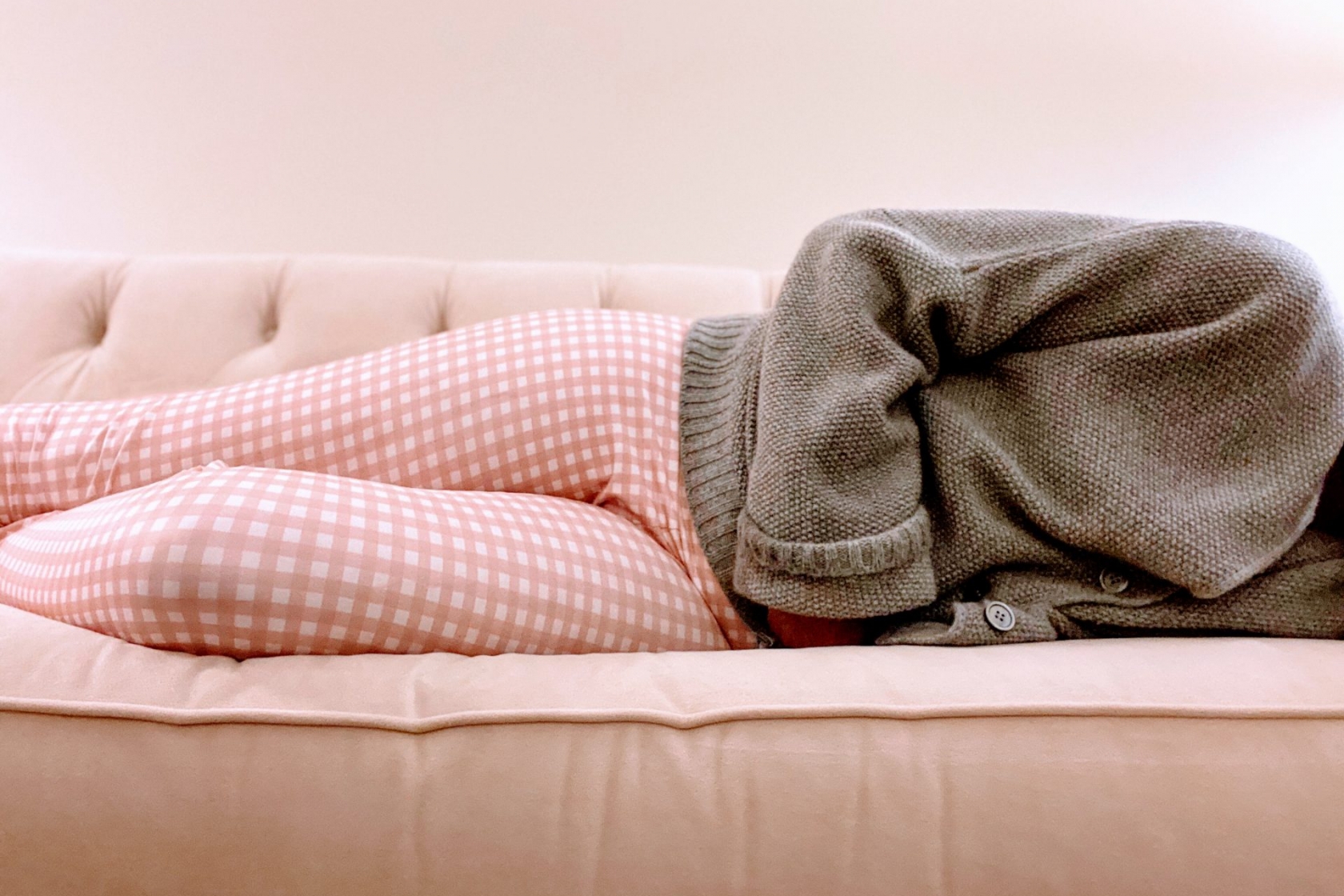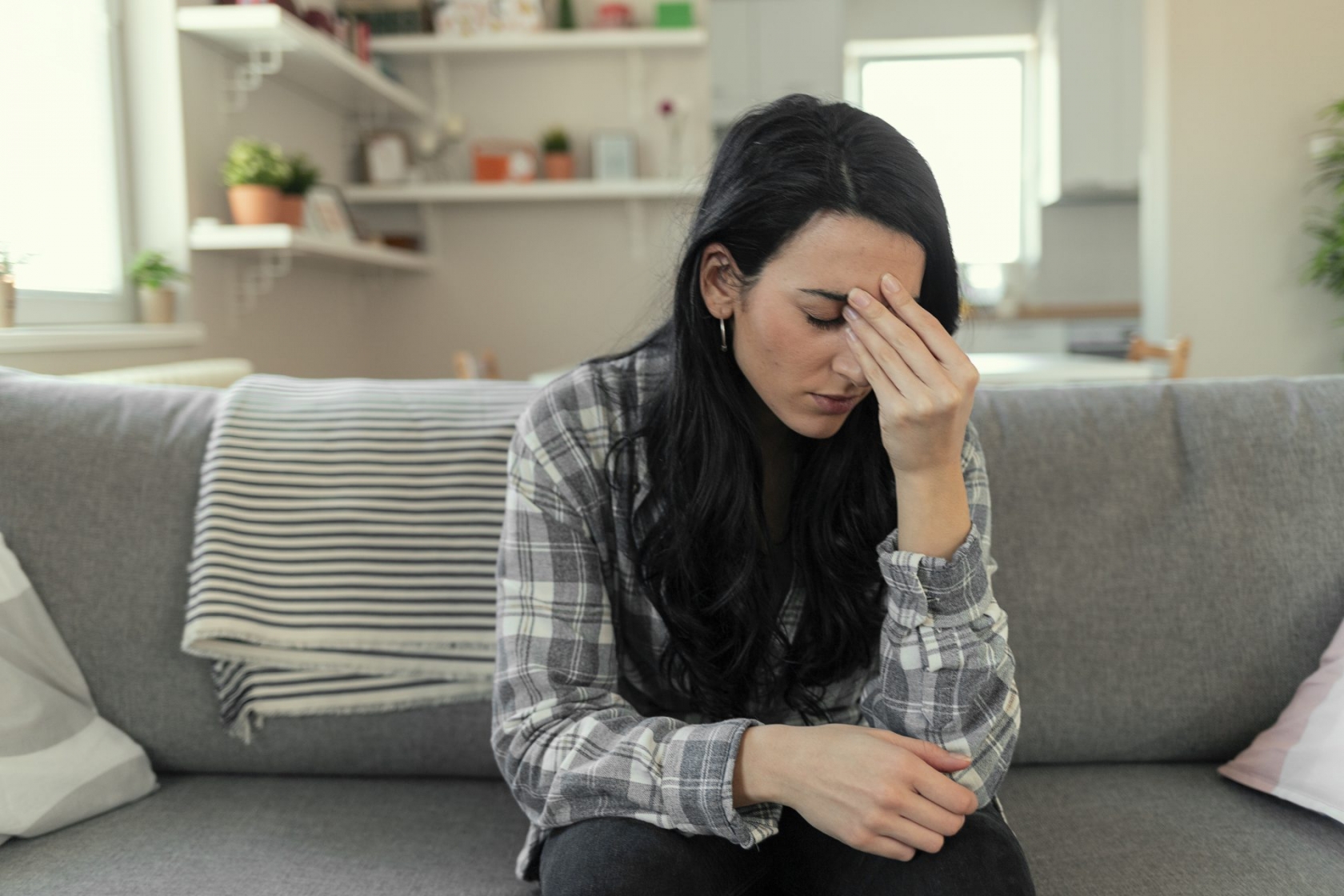Nausea is one of the most common physical symptoms of anxiety. But what causes it? We asked the experts to explain.
Feeling sick is never nice. But when that nausea is caused by anxiety, it can feel like an extra kick in the teeth.
If you’ve ever experienced that “butterflies in the stomach” feeling the night before a big meeting, you’ll know what we’re talking about.
As common a symptom as it may be (it’s listed at number five on the list of anxiety signs on the NHS Every Mind Matters website), nausea triggered by anxiety can be incredibly disruptive – especially for those people who end up physically vomiting as a result.
So, why does anxiety cause nausea? And is there anything you can do to prevent and alleviate those feelings in the future?
To find out more, we asked two health experts from Bupa UK – Caroline Harper, a mental health adviser, and Fatmata Kamara, a specialist nurse adviser – for their insight. Here’s what they had to say.
Why does anxiety cause nausea?

To understand why anxiety can cause nausea, you first need to understand the close relationship between the brain and the gut, and how the two interact.
“Your brain and gut are closely linked, so if you’re feeling strong emotions, there’s a good chance your stomach and intestines will be affected, too,” Harper explains. “When we’re anxious, this can impact how the gastrointestinal tract moves and contracts.”
As well as having an impact on the physical movement of your gastrointestinal tract (aka, where your food gets broken down and digested), the chemicals and hormones that are associated with anxiety can also interact with the nerve cells in your gut, which in turn can also make you feel nauseous.
Kamara explains: “Your gut is lined by the enteric nervous system (ENS). This system, sometimes referred to as ‘the second brain,’ contains more than 100 million nerve cells and goes from the oesophagus to rectum.”
She continues: “The ENS has a big job controlling a number of things, including swallowing and releasing the enzymes needed to break down food. As the enteric nervous system is closely linked to the central nervous system, your two ‘brains’ are constantly in communication and can cause changes to each other’s behaviour.
“If you have anxiety, a chemical is released within your brain called corticotropin-releasing factor (CRF). This chemical sends increased pain signals between your brain and gut, causing you to feel ‘anxious’. It can also cause physical symptoms, such as irritation within your digestive system, as well as nausea, spasms and diarrhoea.”
Finally, Kamara adds, the stress associated with feeling anxious can also weaken your usually-tight intestinal barrier, causing some of the gut’s bacteria to enter other areas of the body. This ‘leakage’ can in turn cause changes within your digestive system like nausea, diarrhoea and abdominal pain.
Why do some people experience nausea while others don’t? And why is some people’s anxiety-induced nausea more severe than others?

While the basic structure and behaviour of each human body is mostly similar, no two people will react to stress and anxiety in the same way – and that means the physical symptoms we experience are also different, Harper explains.
“The way each of us deals with anxious situations depends on a number of factors, including the make-up of your personality and your coping mechanisms,” she says. “As we all react to anxiety in our own way, some people may experience nausea and other physical symptoms, like trouble sleeping, stomach ache or constipation – and others may not.”
Harper adds that some medical conditions, like irritable bowel syndrome, may make it more likely for a person to experience symptoms like nausea when they’re feeling anxious.
Is there anything you can do to ease/prevent anxiety-induced nausea?

Because anxiety-induced nausea is exactly that – induced by anxiety – one of the main things you can do to relieve this feeling is to work on reducing your anxiety.
“Remember you’re not alone in this – lots of people struggle with these physical and mental symptoms,” Harper highlights. “Try talking to someone you trust about how you’re feeling – this could be a friend, family member, trained counsellor or health professional. Don’t forget that services like Samaritans offer free listening services, too.”
If you’ve dealt with anxiety in the past, chances are you’ve tried a wide array of self-help methods. But if you’re yet to give any a go, or are looking for new ones to try, Harper recommends things like taking care of your body via exercise and a healthy diet, avoiding using alcohol, cigarettes or drugs (even if they feel like they reduce your anxiety in the short term) and practising mindfulness and breathing techniques to help you relax.
She also recommends trying not to avoid situations that make you feel anxious, even if it feels like a solution in the short term.
“Some people may feel that avoiding situations that make them feel anxious will rid them of their symptoms. However, it’s healthier to try and slowly build up the amount of time spent in an anxious environment instead,” she explains.
“If anxiety is creating difficulties for you in the long-term, make sure you book an appointment to see your doctor. Once they’ve an understanding of what you’re going through, they may be able to refer you for talking therapies, like cognitive behavioural therapy.”
If you, or someone you know, is struggling with their mental health or emotional wellbeing, you can find support and resources on the mental health charity Mind’s website and NHS Every Mind Matters or access the NHS’ guide to local mental health helplines and organisations here.
If you are struggling, you can also ask your GP for a referral to NHS Talking Therapies, or you can self-refer.
You can also call the Samaritans in the UK on 116 123 or email [email protected] for confidential support.
Images: Getty
Source: Read Full Article
